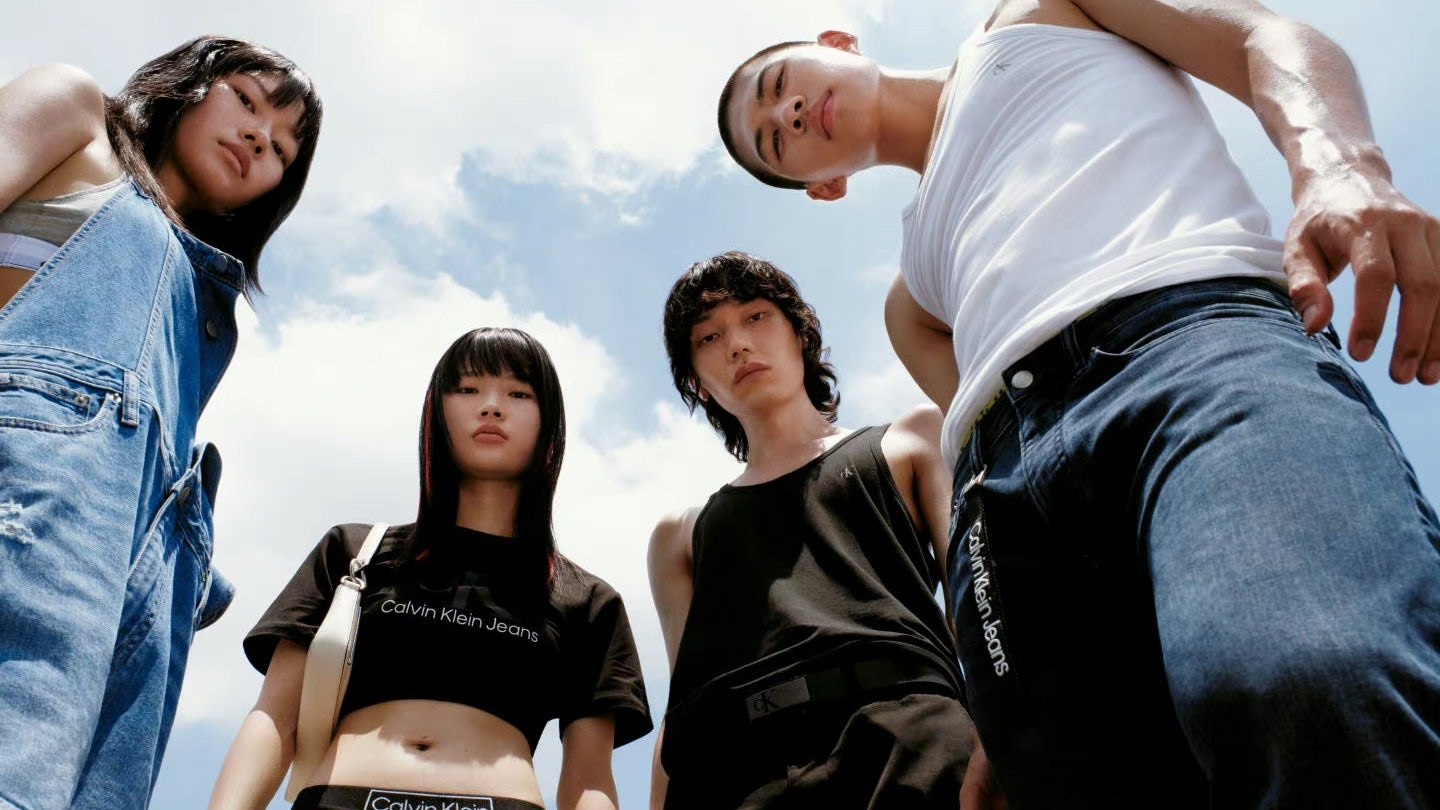In 2023, a series of Chinese buzzwords swept across various aspects of society, shaping trends, influencing behavior, and reflecting the dynamic cultural shifts in modern China. From the depths of social commentary to the heights of luxury consumerism, these buzzwords offer a unique window into the evolving Chinese zeitgeist.
They encapsulate everything from the relentless pursuit of success to innovative consumer trends, reshaping how we understand China's global economic and cultural influence. Let's delve into these eight defining terms that have not only dominated conversations, but also signified broader societal and market trends in China this year.
Barbie Q (芭比Q): It’s over#
In 2023, Chinese internet culture witnessed the rise of a quirky term, "Barbie Q" (芭比Q), which intriguingly has nothing to do with the iconic Barbie doll, or even barbecues. This playful term originated from a Chinese e-sports streamer's defeat in a game, where he lamented, "It's over, Barbie Q!" This catchphrase quickly evolved into viral slang, symbolizing a sense of ending, or misery. Surprisingly, it's a linguistic twist on the homonym 'BBQ,' standing not for a joyful grill party, but for a comedic representation of defeat or despair. This phrase became a staple among TikTok gaming bloggers, adding a humorous, self-deprecating layer to their content. "It's over. It's Barbie Q" has since become a popular way for netizens to express resignation or humorous defeat, a testament to the playful and ever-evolving nature of internet language trends.
Special forces travel (特别兵试旅行): Adventure meets tourism#
In the post-Covid era, "special forces travel" (特别兵试旅行) emerged as a defining trend in China's travel culture. Unlike the typical tourist trail focused on leisure and relaxation, this style of travel challenges both the body and mind, reminiscent of military special forces training. It caters to a demographic seeking more than just sightseeing; these are adventurers craving survivalist experiences in the heart of nature. This trend underscores a shift among younger Chinese travelers, who now favor transformative, character-building journeys over traditional tourism. It's a clear reflection of a generational shift towards active, experience-driven tourism, inspired by the desire for personal growth and adventure. The concept is closely linked to the Chinese term daka, or "punching the card," which denotes the act of going through all the standard touristic attractions like visiting the Eiffel Tower in Paris.
Just thinking youth (光想青年): Generation of dreamers#
Guang xiang qingnian translates to "just thinking youth," a term encapsulating a significant segment of Gen Z in China. These young individuals brim with ideas, dreams, and aspirations, yet often find themselves trapped in a loop of contemplation, unable to transform thoughts into actions. This phenomenon is increasingly prevalent in a society where the pressures and pace of life often outstrip people’s ability to execute. It reflects the paralysis that can come from an overload of possibilities, or the fear of failure in a competitive environment. This term poignantly captures the struggles of modern youth, who are ambitious yet hindered by procrastination or inertia, highlighting a critical aspect of contemporary societal challenges.
Electric fish (电子敲木鱼): Digital zen#
The term "electric fish" (电子敲木鱼) soared in popularity in 2023. It’s a digital adaptation of a traditional Buddhist practice. The term refers to an app simulating the act of striking a wooden fish, a ritualistic instrument in Buddhism. Surging to the top of China's App Store, the app, named Muyu, features a simplistic design, inviting users to tap a digital wooden fish, creating a meditative rhythm. The app tracks the taps, offering users a playful yet calming experience. It's become a tool for the modern workforce to manage stress, and reflects the need for accessible, digital means of relaxation. Users report that the rhythmic tapping helps soothe their nerves, providing a unique form of digital tranquility. The app's rise is a testament to the fusion of tradition and technology in modern Chinese life, catering to the growing need for innovative stress-relief methods.
Electronic pickled vegetables (电子榨菜): The electric snack#
The term "electronic pickled vegetables" (电子榨菜) symbolizes the consumption of digital media for casual entertainment. It compares light-hearted content like short videos, memes, and social media posts to pickled vegetables – a snack, not the main meal. This metaphor captures the essence of modern media consumption habits: quick, enjoyable, and not meant to be taken too seriously. It's indicative of the larger trend towards bite-sized, easily digestible formats, catering to an audience seeking amusement and leisure in their digital experiences.
Conspicuous bag (显眼包): Endearingly pushy#
In the lively realm of Chinese variety shows, "conspicuous bag" (显眼包) has become a term of endearment for celebrities who are unabashedly enthusiastic, yet inadvertently amusing. This phrase paints a picture of individuals who stand out not just for their eagerness to impress, but also for their unwittingly conspicuous nature. Despite its implications of being pushy or showy, the term is often used affectionately. Some celebrities like actor Dylan Wang who is working with Estee Lauder, Wei Daxun, and Bai Jingting embody this term with their blend of humor, occasional awkwardness, and lovable antics. They are celebrated as "youthful conspicuous bags," a title that acknowledges their unique charm and their ability to bring laughter and light-heartedness to the screen.

Involution (内卷): The cycle of hyper-competition#
Nei juan (内卷) translates literally to "turning in on itself," symbolizing the downward spiral or 'race to the bottom' that many young Chinese feel characterizes their lives in a highly competitive society. It's been around since 2018, but continues to pervade daily discourse in China. The term is used by netizens in contexts like, "That colleague works 12 hours a day and excels at their job." While there might be admiration for the coworker's dedication, the comment hao juan is added, reflecting the sentiment, "that's so competitive." This reflects the intense pressures and competition workers face in their daily lives. Originating from anthropological discourse, it describes an exhausting cycle of competition leading to diminishing returns, often manifesting in overwork and stagnation. This concept has struck a chord particularly in the context of China's highly competitive education and job markets.
The term reflects a relentless push for self-improvement and success, often to the point of exhaustion. "Involution" represents more than just a buzzword; it's a critical commentary on the pressures faced by the younger generation, constantly striving to excel in an increasingly competitive environment.
Thai pants are spicy (泰裤辣): Surreality#
An internet meme that captured the hearts of many in 2023 originated from a slogan by popular Chinese rapper Wang Linkai at a music festival in Shenzhen. Wang Linkai originally meant to say "very cool" (太酷了 tai ku le), but due to the rapper's pronunciation, it sounded like "Thai pants are hot" (泰裤辣 tai ku la), a homophone of "very cool." Since then, the term's been adopted by netizens. They began humorously adding "Thai pants are hot" to various sentences, transforming it into a viral catchphrase.
Thai pants, often known as harem pants, are notably popular among tourists visiting Thailand, which is why they are referred to as Thai pants. Thailand is recognized as the top travel destination for Chinese tourists. In 2019, around 11 million visitors from China traveled to Thailand, making up 27% of total international tourists. These pants are characterized by their long and baggy style, with a snug fit around the ankle. While the original message was about encouraging fans to be true to themselves, its quirky and somewhat baffling nature turned it into a widespread meme that has nothing to do with Thai pants.
Editor's note: the article was updated to reflect that "Thai pants are hot" (泰裤辣 tai ku la) is a homophone of "very cool" (太酷了 tai ku le)

